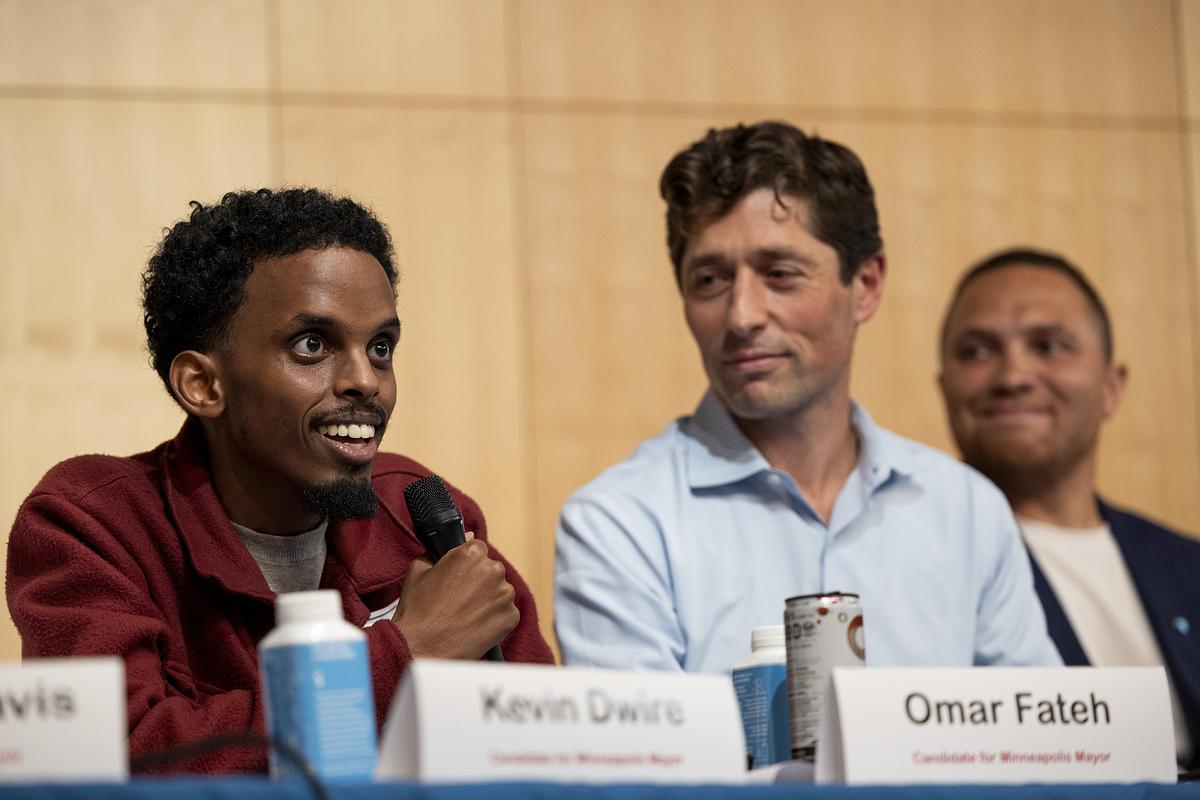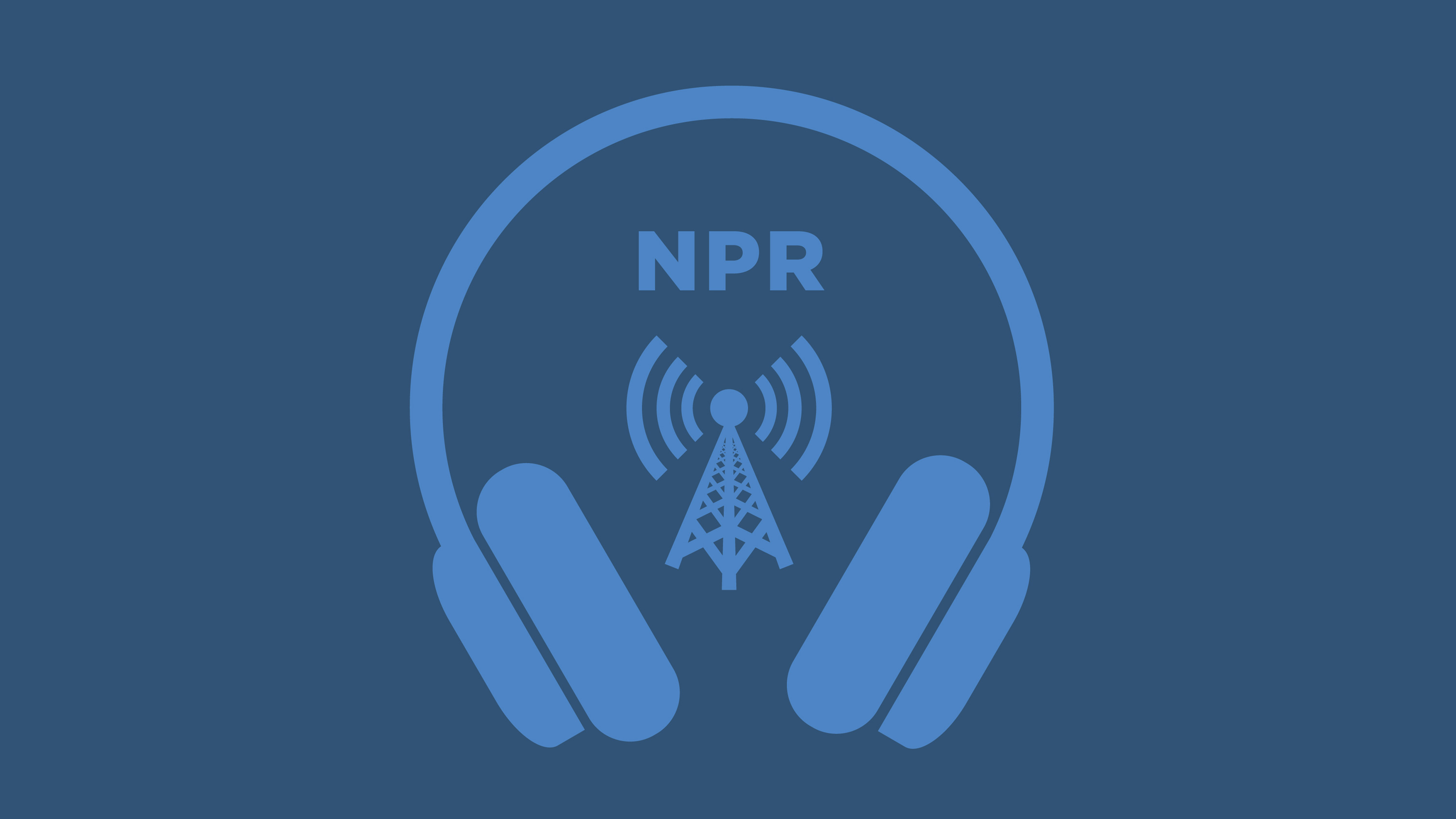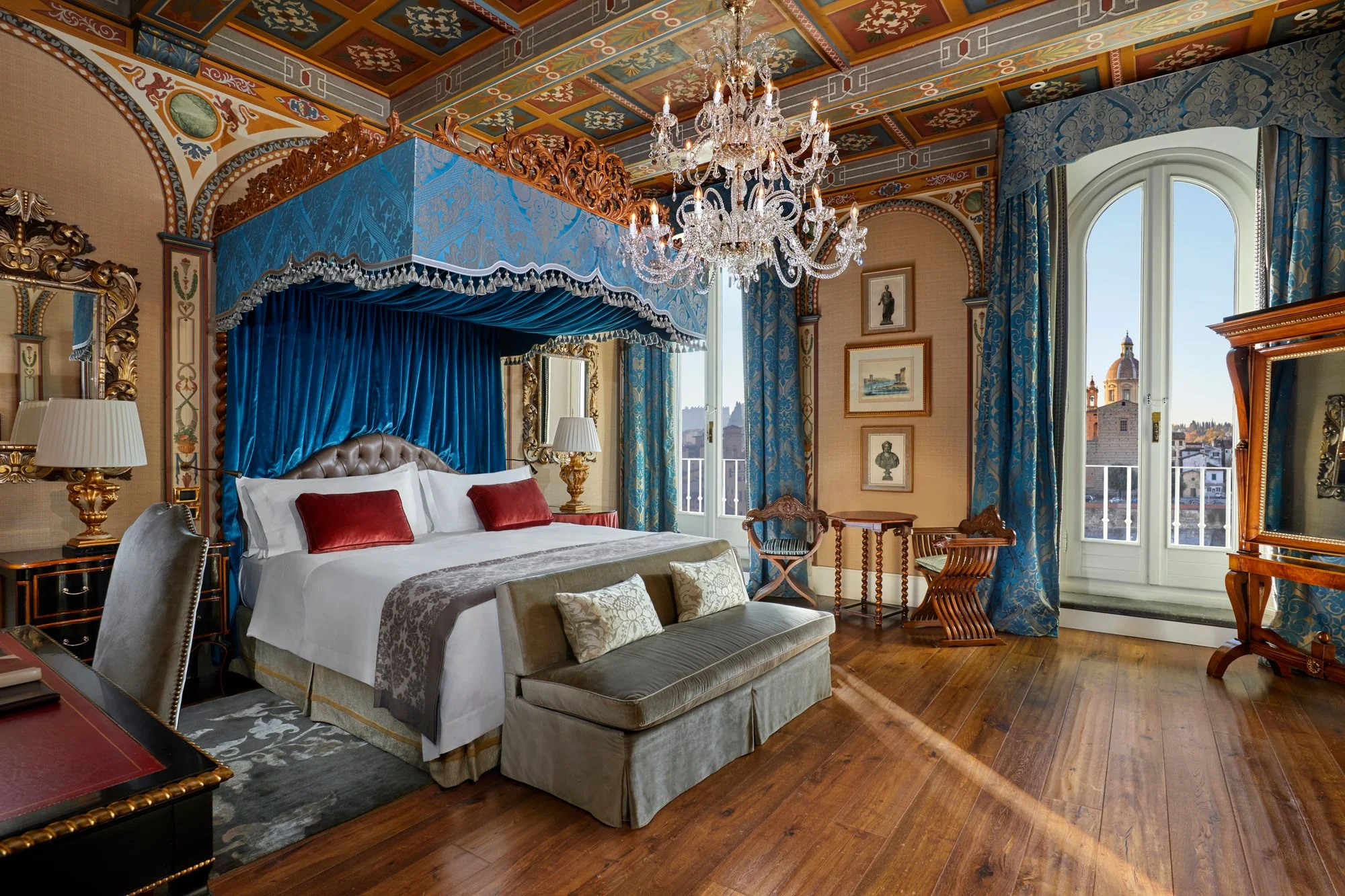As Minneapolis’ mayoral candidates edge for policy points, the battle for likeability looms large
By Brian Martucci
Copyright minnpost

Two events with starkly different tones brought some clarity this week to the race for Minneapolis mayor. On Wednesday evening, Sept. 24, candidates engaged in a cordial forum hosted by progressive advocacy groups, with the absence of incumbent Mayor Jacob Frey. On Friday morning, Frey joined his competitors for a heated debate hosted by the nonpartisan Citizens League.
At both events, discussion ranged from reimagining downtown to managing an increasingly hostile relationship with the federal government. The candidates for mayor made clear in their responses that the issues at play are not only complicated but interconnected — and that some of the sharpest contrasts within a largely left-of-center cohort involve personal style rather than political ideology.
Wednesday’s event at New City Church in the Powderhorn neighborhood featured Frey challengers Rev. DeWayne Davis, DFL state Sen. Omar Fateh, lawyer and entrepreneur Jazz Hampton, business owner Brenda Short and three others. Organizers focused questions on issues related to immigrants, refugees, youth and families. Friday’s debate at downtown’s Westminster Presbyterian Church featured the same leading cast, with the addition of Frey.
The testiest exchanges came between Frey and Fateh, both of whom have courted controversy over 15-plus years of combined tenure as elected officials. (The Minnesota DFL revoked the city chapter’s endorsement of Fateh following a protest from Frey’s campaign and broader questions about its convention voting process.)
Citizens League representatives stressed their hope that the next mayor of Minneapolis will take a collaborative approach to leadership. “Minneapolis faces significant challenges,” said Jake Loesch, executive director. “But those challenges also present incredible opportunities to work together, find common ground and implement pragmatic policy solutions.”
Public safety and police-community relations
Public safety was front and center at both events following a summer pocked by high-profile shootings across the city. Frey, Davis, Fateh, Hampton and Short agreed that assault-style weapons have no place in Minneapolis.
Fateh called for a special legislative session to address the issue, though mustering the votes to pass a statewide ban appears unlikely. On Wednesday, Hampton said the city should pass an assault weapons ban and — with like-minded municipalities — ask the Minnesota Legislature to exempt the ban from a state preemption law that would otherwise invalidate the cities’ approach.
The candidates for mayor also broadly agreed on the need for a comprehensive approach to public safety with more space for violence interrupters and mental health support professionals. Davis, on Friday, called out the “false dilemma” between “warrior-style police on every corner” and activist calls to “defund” the Minneapolis Police Department.
Distancing himself from calls to radically transform MPD following George Floyd’s murder in 2020, Fateh said on Friday that he’d honor the city charter’s requirement for at least 700 sworn officers. Frey’s campaign was quick to point out via email that Fateh once supported amending the charter to “dismantle and replace MPD.”
Several candidates for mayor pushed back on what they called a media-driven narrative that Minneapolis is an unlivable “hellscape.” Frey acknowledged on Friday that elevated gun violence, frequent carjackings and a general sense of disorder may have fed that narrative in 2021 and 2022, but said his administration has made significant strides in the years since. Key measures of crime in north Minneapolis, he said, are near 20-year lows.
Also on Friday, Frey said MPD Chief Brian O’Hara, who moved from New Jersey to take the job in 2022, has his “full confidence.” Short said she would fire him, accusing Frey of disrespecting the force by replacing former Chief Medaria Arradondo with an out-of-state hire. Davis, Hampton and Fateh expressed varying levels of “concern” with O’Hara’s performance but said they’d wait until they were in office to decide his fate.
Relations with a hostile federal government
The Trump administration deployed thousands of National Guard troops to Los Angeles and Washington, D.C. this year and has threatened similar action in Chicago, Memphis and other cities with Democratic mayors.
Related from MinnPost: Mayor Frey preps for National Guard deployment he hopes will not come
Frey, Davis, Fateh, Hampton and Short all said on Friday that they’d resist any similar effort in Minneapolis. They also said they’d maintain or strengthen the “separation ordinance” preventing MPD from coordinating with Immigration and Customs Enforcement. On Wednesday, Davis, Fateh, Hampton and Short said they’d work to shield LGBTQ+ residents from a potentially hostile federal government, as well. (Friday’s moderators did not ask about the LGBTQ+ community specifically.)
Frey took the opportunity to defend MPD’s presence at a June raid on a Lake Street business, saying they helped ensure public safety amid widespread confusion about the raid’s purpose.
Related from MinnPost: Lingering questions about role of MPD enter race for mayor
Fateh said he’d “under no circumstances” permit MPD to support federal law enforcement. Hampton staked out a more moderate position, saying – not for the first time – that he’d make sure MPD’s “boots are pointing in the right direction.”
Housing and homelessness
“None of the challengers want [homeless] encampments to persist,” Fateh said on Friday. He said the city should be more “humane” in its dealings with unhoused people and not bulldoze encampments without giving residents the chance to recover ID cards and other key belongings.
If elected mayor, Fateh said, he would transfer primary responsibility for unhoused residents from Minneapolis Regulatory Services to the city’s health department, citing the “public health emergency” of communicable disease in encampments.
Frey said the city had been humane — and proactive — in addressing homelessness, citing its partnerships with Hennepin County on temporary housing and its provision of mobile medical services to encampment residents.
Davis and Hampton agreed on the need for a proactive approach but said more could be done. Both said the city needed to boost outreach staff and try to directly address the needs of every unhoused individual.
“We shouldn’t let it get to the point where police have to intervene for a 100-person encampment,” Davis said.
On the closely related issue of housing policy, Fateh stood alone in saying he would follow through on enacting a rent stabilization ordinance approved in principle by Minneapolis voters in 2021. He said on Friday he’d look to St. Paul’s policy, which experts say has chilled new housing construction, for ideas on possible exemptions “to incentivize good behavior” among landlords.
Meanwhile, Frey touted his housing record, saying that during his tenure, deeply affordable housing had grown 8.5 times over. Hampton said that the impressive-sounding figure only reflected how little of it the city had built previously.
Reimagining downtown Minneapolis
All five candidates for mayor on Friday agreed that downtown Minneapolis would need to change — perhaps dramatically — to regain something like its pre-COVID vigor.
Frey said his administration had put it on the right track, beginning with support for converting pre-World War II office buildings and warehouses into new housing. Nodding to his work as the city council member for the North Loop “before it was the North Loop,” he said downtown needed to incentivize small businesses to locate in now-vacant storefronts, break up large retail spaces to enliven streets and create more draws like this month’s 2,300-person dinner party on Nicollet Mall.
Fateh said the city should impose a “commercial vacancy tax” on empty storefronts and lobby state legislators for a land value tax to encourage productive uses of underutilized property.
Related from MinnPost: Amid race for mayor, returning workers add some bustle to downtown Minneapolis
Hampton called for a concerted effort to increase downtown’s population and employment base, citing conversations with downtown residents. Speeding up business permitting and inspections would help on both counts, he said, as would setting aside funds to support business owners when construction projects take longer than promised.
Davis agreed that the city needs to do more to incentivize businesses to locate downtown and reduce regulatory burdens. Noting that Minneapolis remains the region’s economic engine, he said the city needs to change the narrative that has taken hold around public safety — to say proudly that downtown “is a great asset and we have a vibrant city that you will want to see yourself in.” He said Minneapolis should more forcefully advocate for its own interests at the State Capitol and be bolder about diverging from statewide municipal groups, like the League of Minnesota Cities, when their interests aren’t aligned.
Hampton and Davis said the same approaches to restoring downtown Minneapolis could help revitalize other hard-up areas of town, like Uptown and the West Broadway corridor of north Minneapolis. The city’s neighborhoods are its hidden strength, Davis said on Friday.
And on the looming question of whether the city should subsidize a new arena for the Minnesota Lynx and Timberwolves, the candidates were more or less united: No. Frey did say, however, that his office was “already working with” team ownership to find a new site in town.
As the candidates for mayor continue to spar, early voting is underway in the ranked-choice election, where voters rank their top three choices in order of preference. The city says it sent out more than 12,600 mail-in ballots on the first day of voting. That’s nearly three times the first-day total for the 2021 municipal election, suggesting voters are eager to weigh in.
Brian Martucci is a MinnPost freelance writer helping cover the 2025 Minneapolis and St. Paul city elections. You can send us your questions and ideas for election coverage, including tips for fact briefs, to feedback@minnpost.com.



